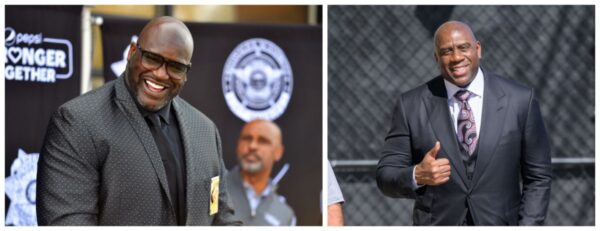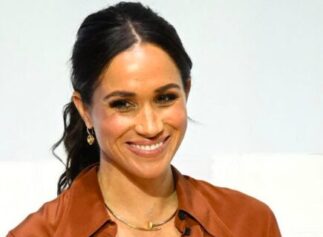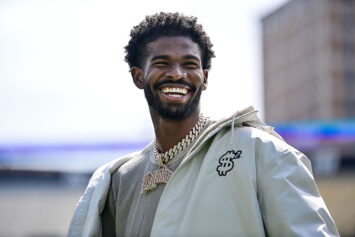Black celebrities have entered the franchising arena as a way to rapidly increase their wealth. While some people believe it’s the cheat code for big bank, others understand it’s much more, embracing the highs and the lows of the volatile fast-food and restaurant industry.
Athletes, actors, entertainers and other influencers like Shaquille O’Neal, Chris Brown, Robert “Don Pooh” Cummins, Magic Johnson, Rick Ross and Serena Williams all are franchisees, third-party buyers who pay to participate in a brand’s success and equity — accessing the rights to use the company’s name in marketing, collecting royalties and more.

Benefits of Owning a Franchise
Many people want to buy a franchise because it affords them the opportunity to open a business with a recognizable name with an already established customer base. Brand recognition also decreases the failure rate, securing a customer a reliable or familiar sense of service normally associated with the brand. What also lowers failure rates is the connection to a larger system of operations that can provide assistance to the new business owner when troubles arise in the day-to-day workings of the franchise.
According to Nerdwallet.com, franchising provides a level of business assistance often not afforded to a new employer.
As noted on NerdWallet, “Depending on the terms of the franchise agreement and the structure of the business, the franchisee might receive essentially a turnkey business operation.”
“They may be provided with the brand, the equipment, supplies, and the advertising plan—essentially everything they need to operate the business.”
The website points out how not all franchises supply everything to the franchisee, saying, “Other franchises may not provide everything, but all franchises provide the knowledge and wisdom of the franchisor. Whether that knowledge is stored in a searchable, digital knowledge base or is a phone number to reach the franchisor directly, the franchisee has access to a deep reservoir of business assistance to guide them through the process of owning and operating a business. This knowledge can be essential to running a successful business and makes it much easier than starting a business from scratch.”
Another business bonus with being a franchisee is that with the lower risks, there are higher profits, with those maintaining a level of ownership of their independent franchise generally making more money than small business owners going the ownership space alone.
Examples of Celebrity Mentorship in Franchising
Athletes are most known for endorsing products, but former NBA All-Stars Earvin “Magic” Johnson Jr. and Shaquille O’Neal are probably the best-known Black celebrity names that have bought into franchising and revolutionized how people see this modality of investments and the lucrative returns it yields.
O’Neal, who can boast four championship rings during his professional career, has been smashing the franchising game with 155 Five Guys Burgers and Fries restaurants, 40 24-Hour Fitness Clubs, 17 Auntie Anne’s Pretzels and a few Big Chickens, helping him to comfortably have an estimated net worth of $400 million.
One of O’Neal’s mentors is Magic Johnson, an athlete-turned-entrepreneur who has one mission that drives him, according to Franchise Wire. “It’s not whether you can become successful … it’s how many people can you help become successful.”
Johnson started Magic Johnson Enterprises, an investment firm, in 1989. This is the part of his company that owns multiple franchises.
Over the last 30 years, Franchise Consulting reports, he has invested in a number of locations of Burger King, 24-Hour Fitness, Starbucks and TGI Fridays. He currently holds an estimated $1 billion in investments, across multiple industries, with this branch of his empire.
Edward Kushell, CEO of Franchise Consulting Group, said, “Many athletes, most retired, have made investments in franchising with mixed results. Those that failed did so because the athlete listened to the advice of a lawyer or agent with little experience in franchising.”
He continued, “Those that succeeded did so because they undertook careful due diligence by experts. In all his business dealings, Magic Johnson understood that well.”
And Johnson, with his net worth of $620 million, tried to pass the game around.
Missed Opportunities in Franchising
O’Neal says one of his biggest mistakes in franchising was investing in Starbucks, something Johnson — to his benefit — hopped on.
Johnson and Howard Schultz, the owner of the coffee company, decided to get into business together. Seeing something bigger for the brand in 1998, Johnson encouraged the coffee titan to expand the business into Black neighborhoods.
Schultz didn’t see the vision until Johnson took him to one of his movie theaters. The rest is history.
“Our biggest screen had 500 women inside,” the athlete remembers.
“All of a sudden, every woman thought she knew Whitney Houston personally and started talking to the screen. So, Howard grabs me about 20 minutes in and says, ‘Earvin, I never had a movie-going experience quite like this.’ Guess what happened? That got me the deal.”
Schultz got the vision because Johnson’s industrious nature and finger on the pulse of Americans were so contagious. Johnson would go to obtain 105 Starbuck stores before he sold them back to the company 20 years later in 2010, for a whopping $100 million.
O’Neal says that he also had conversations about joining the Starbucks team, but was not interested. He now regrets his decision.
“My biggest mistake was not investing in Starbucks,” O’Neal explained. “I had the opportunity before Magic Johnson, but I told Howard Schultz that Black people don’t drink coffee because I never seen anyone in my family drink coffee.”
Paving the Way
Other celebs are succeeding in the space. Whether one considers Chris Brown’s 14 Burger King franchises or Rick Ross’ 25 Wingstops, franchising is a wave that many are opting to ride.
Or some are just opting to ripple their own tides. An example of this is Don Pooh. The music man behind many hits for Mary J. Blige, Jay-Z, Nas, and more has followed Johnson’s model, which moved from franchisee as the owner of several IHOPs, 16 Papa Johns, and two Checkers, to a franchiser with his Brooklyn Chop House and his Brooklyn Dumpling Shops.
The sky’s the limit, and for him it only makes sense that celebrities tap into the franchising movement on some levels or on all levels.
“It’s entertainment and food and restaurants and hospitality,” the Brooklyn native said on the “Restaurant Influencers” podcast hosted by Shawn Walchef. “They’re all pretty much synonymous with each other because obviously as an executive, I was always, you know, entertaining people at restaurants.”




